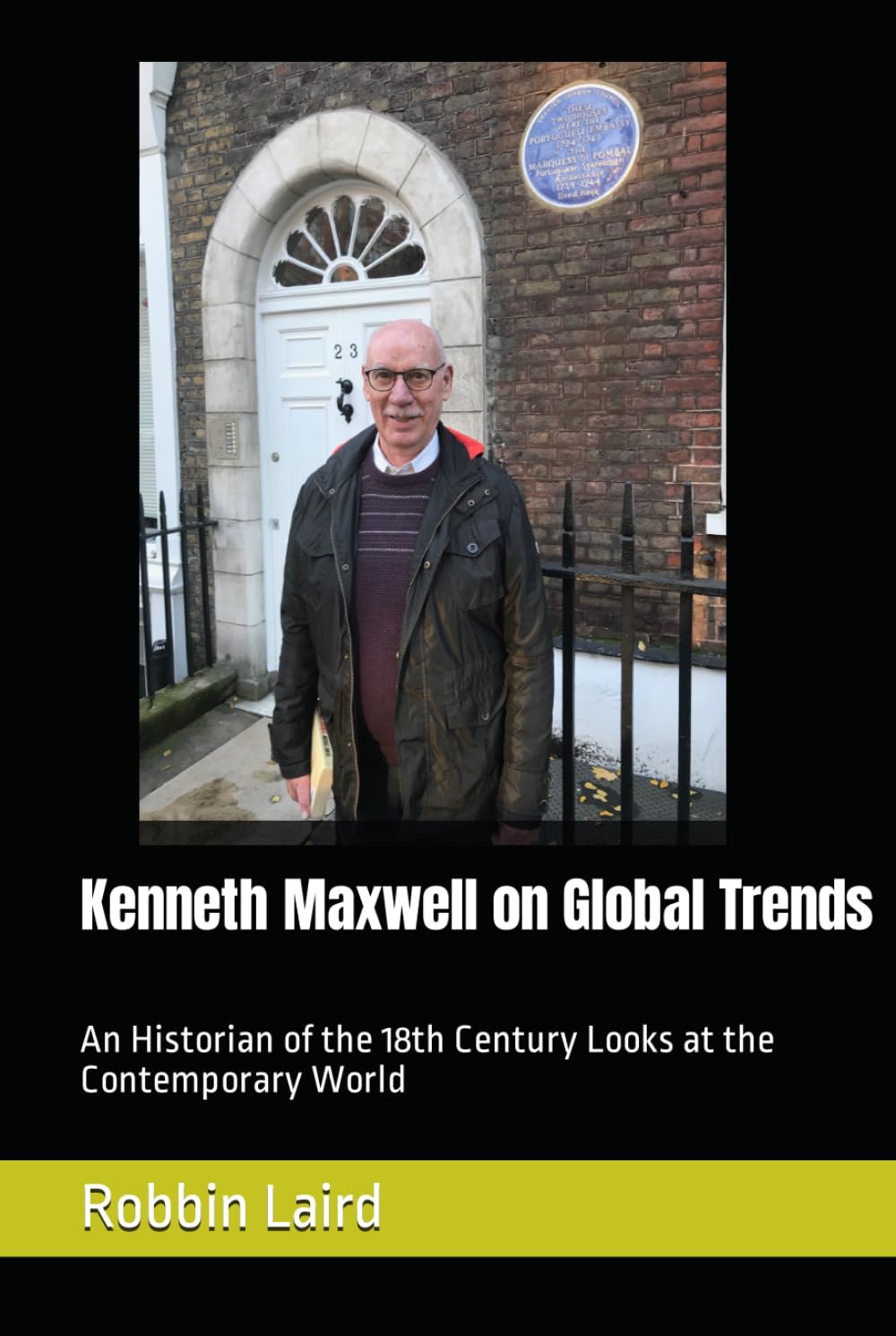Contemporary Global Change Series 1: Kenneth Maxwell on Global Trends
We have launched a series which provides the insights of leading strategic thinkers on global change in our time.
The past 15 years have seen dramatic changes which are driving further change in the global system.
The series provides insights with regard to strategic change in the global system over the past 15 years from the standpoint of U.S. Administrations as well as the work of a number of well-known strategic analysts.
We have seen the rise of the multi-polar authoritarian world.
The challenge facing the liberal democracies is fundamental: how to preserve the “rules-based order” in this context and defend Western values.
The first book in our series was first published in June 2023 but has been revised in 2024 to add new materials.
Kenneth Maxwell on Global Trends comprises essays from 2001 to 2024 by Dr. Kenneth Maxwell, a historian specializing in 18th-century Brazil and Portugal, offering commentary on global trends.
Maxwell’s essays examine a range of historical and contemporary issues, including terrorism, international relations, political corruption, and the global order.
He connects his expertise in 18th-century history to contemporary events, drawing parallels between the past and present to provide a broader understanding of global affairs.
The book is a collection of Maxwell’s reflections on major events and political developments, offering a unique perspective on the world from the eyes of a seasoned historian.
Key themes explored include:
- Brazil’s Rise as a Global Player:
Maxwell consistently highlights Brazil’s growing economic and military might, positioning it as a significant player in the international arena. He emphasizes Brazil’s burgeoning defense industry, illustrated by its pursuit of advanced weaponry and its role as a major arms importer.
“The point is that Brazil is potentially one of the major defense markets in the world, and that on several fronts, it is getting very close to taking major decisions over the purchase of advanced defense systems.” – November 9, 2011
He further emphasizes Brazil’s strategic participation in the BRICS group, highlighting its ambition to challenge Western dominance in global finance and development through initiatives like the BRICS Development Bank and a currency reserve pool.
“The BRICS concept was launched when the world was in a “unipolar” moment. Washington was in the ascendancy. It was seen to be the world’s remaining superpower.” – August 29, 2013
- The Complexities of Brazil’s Domestic Landscape:
Maxwell does not shy away from addressing the internal challenges that Brazil faces, including political corruption, drug trafficking, and the enduring legacy of its military past. He delves into the Petrobras scandal, the HSBC private bank scandal, and the challenges of controlling Brazil’s vast borders.
“Brazil’s problems are mega-problems, and they are also international in scope.” – February 13, 2015
He also discusses the need for Brazil to confront the crimes of its military dictatorship, suggesting that this would be crucial in defining a new role for the armed forces in a democratic Brazil.
“The Brazilian armed forces have yet to face up to the crimes committed under military rule. If Brazil did so, it would help define a vital new role for the armed forces in the country’s future.” – April 5, 2012
- The Shifting Global Power Dynamics:
Maxwell expertly analyzes the changing geopolitical landscape, particularly the decline of U.S. hegemony and the rise of new powers like China and Russia. He discusses the implications of Russia’s assertive foreign policy, the evolving role of NATO, and the rise of a “multi-polar” world order.
“Next year Russia will host the expanded BRICS summit and the gathering of the BRICS+ heads of state. The meeting in 2024 will be chaired by Vladimir Putin. According to Russian Foreign Minister, Sergei Lavrov, the next BRICS summit will be a “manifestation of global multi-polarity.”” – July 12, 2023
He also scrutinizes the U.S.’s often misguided foreign policy decisions, criticizing the invasion of Iraq and the handling of the Afghanistan withdrawal, drawing parallels to a cautionary tale he was told as a young cadet.
“Never he said sign a blank cheque: ‘Anyone can write in anything in the blank space and you alone would be responsible’ he said… President George Bush signed a blank cheque in 2001, history has filled in the void, and President Biden in 2021 has dishonored it.” – August 17, 2021
- The Importance of Historical Understanding:
Throughout his essays, Maxwell emphasizes the importance of historical context in understanding contemporary events. He draws on his deep knowledge of Brazilian history to provide insights into the country’s political and social development, using historical examples like the Inconfidência Mineira to shed light on contemporary issues.
“The commemorations bring back memories of my school days.” – April 21, 2016
He also analyzes historical figures like Calouste Gulbenkian, the “Mr. Five Percent” of the oil industry, and Admiral Lord Cochrane, a Scottish mercenary who played a crucial role in securing Brazil’s territorial unity, to illustrate the complex interplay of global forces and individual agency.
- A Critical and Engaging Style:
Maxwell’s writing is characterized by its sharp analysis, insightful observations, and engaging style. He is not afraid to offer critical opinions, whether it be of U.S. foreign policy, Brazilian domestic politics, or the global financial system. He also weaves personal anecdotes and historical insights into his analyses, making his arguments both compelling and relatable.
Conclusion:
Kenneth Maxwell’s “Kenneth Maxwell on Global Trends” offers a valuable and timely analysis of the evolving global landscape. His essays provide a nuanced perspective on Brazil’s role in the world, the challenges it faces, and the opportunities it holds. His insights, grounded in historical understanding and sharp observation, offer a valuable resource for anyone interested in understanding the complexities of the modern world.
Below there is a Deep Dive podcast on the book:
This podcast was generated by Google’s NotebookLM system.

